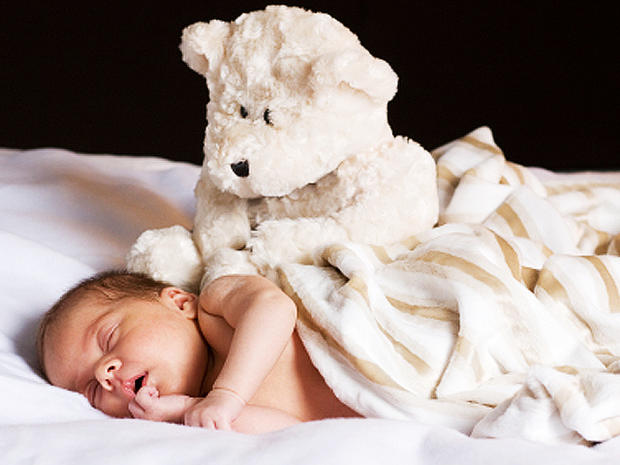Study shows depressed mothers more likely to wake sleeping babies
(CBS News) A sleeping baby may be a glorious thing for many parents, but a new study shows mothers who are depressed are more likely to unnecessarily wake up their sleeping tots than moms who aren't suffering from depression.
PICTURES: Best for babies? Top 20 nations for low newborn mortality
Study: Sudden Infant Death Syndrome rates down, but more risk factors emerge
The study from Penn State shows that depressed mothers were more likely to interfere with their children's sleep even though the infants didn't need help. There was also evidence that infants who woke up more at night were more likely to have depressed mothers, but the link was not as strong as the depressed moms who woke their children up.
"We found that mothers with high depressive symptom levels are more likely to excessively worry about their infants at night than mothers with low symptom levels, and that such mothers were more likely to seek out their babies at night and spend more time with their infants than mothers with low symptom levels," said Douglas Teti, associate director of the Social Science Research Institute and professor of human development, psychology and pediatrics, according to a university press release.
Researchers studied data from 45 infants, aged two years old and under, and their parents over seven consecutive days. Mothers were told to keep an infant sleep diary and at the beginning of the study, completed a depressive symptoms survey as well as a questionnaire that measured worries about their babies when they woke up at night.
On the sixth day, cameras were set up where the babies slept to capture the movement in and out of the room, to view how the baby was sleeping and to see what the parents did after they intervened with their child's sleep.
Overall, the study showed that two biggest concerns for parents were sleeping problems and breathing problems, but researchers emphasize there is no reason to wake a sleeping baby if there is no danger. This can lead to problems in parent-child relationships later on in life.
The researchers recommend helping mothers work through their depressive symptoms, spousal support, giving parents information on good sleeping habits and helping reduce fears about sleeping infant dangers in order to help with the night waking problems.
"In terms of understanding what predicts parenting at night, and how parenting at night affects children, it's important to examine parenting at night much more closely than we have," said Teti. "There's probably a lot going on at night that we need to understand, and we need to use actual observations of what parents are doing. We know very little about nighttime parenting."
The Mayo Clinic has more on baby sleep.

